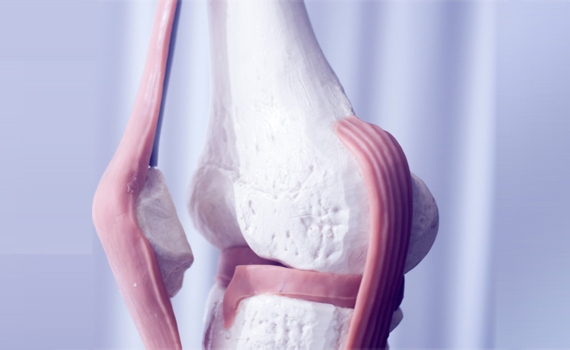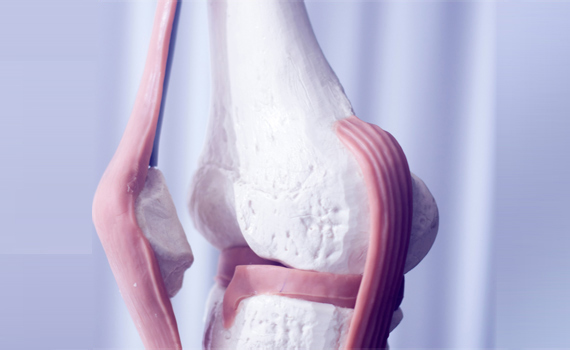

There are many types of arthritis. The most common types of knee arthritis are osteoarthritis and rheumatoid arthritis. Knee arthritis can be due to aging or an injury; symptoms of arthritis may not become apparent for several years after the injury.
Osteoarthritis is the most common type of knee arthritis. This is caused by cartilage in the knee joint breaking down as you age.
Rheumatoid arthritis is an autoimmune disease that leads to inflammation of joints all over the body. This form of arthritis can occur at any age.
Here are some of the most common symptoms that people with knee arthritis may experience:
- Pain in the knee that is getting worse - people will often notice a pain in their knee when doing simple activities such as walking upstairs, as the disease progresses you may start to notice more pain, even when you are resting.
- Tenderness or swelling – knee arthritis can cause inflammation within the knee joint. This is usually more noticeable when you have been inactive, such as waking up in the morning.
- Buckling – as the knee becomes weaker people can start to notice that the knee gives way unexpectedly or becomes unstable.
- Clipping or popping sounds – this can occur when you straighten or bend the knee, and can feel like your knee bones are grinding together. This symptom is usually caused by a breakdown of the cartilage.
- Decreased range of motion – if you suffer from knee arthritis you may notice that you are not able to be as active as you previously were.
- Changes to the appearance of the knee – people can notice swelling around the knee joint or a change in the position of the knee (pointing inwards)
Treatment for knee arthritis will usually start with more conservative methods such as pain medication (oral or local creams), physical therapy, weight reduction and exercise. If your symptoms become unmanageable then it may be time to consider surgery.
Before going ahead with surgery, your consultant will go over all the treatment options, the risks and make sure that all of your questions are answered.
If you would like to find out more about treatment for knee arthritis please contact a member of our team.
This article is intended to inform and give insight but not treat, diagnose or replace the advice of a doctor. Always seek medical advice with any questions regarding a medical condition.










